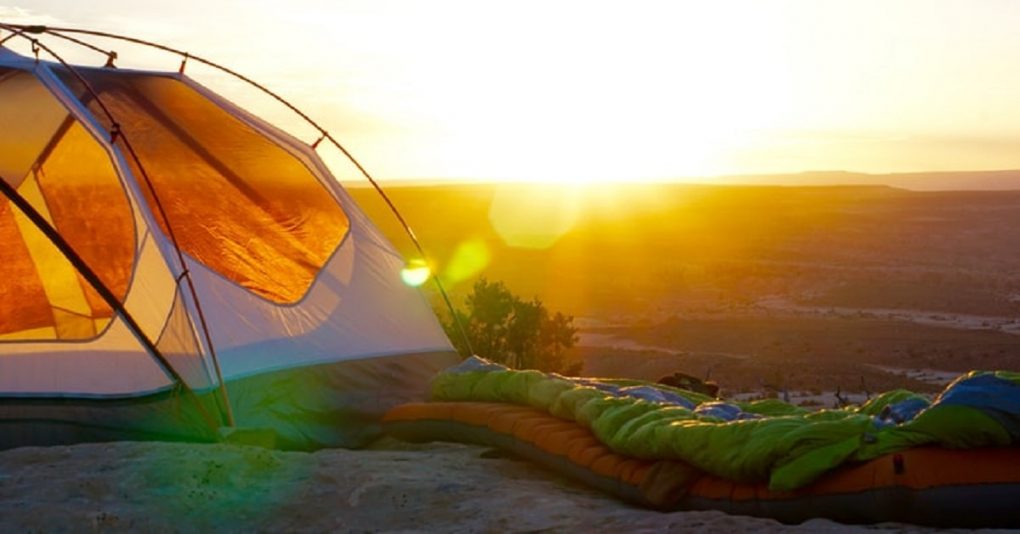
One of the biggest problems with camping is people not knowing how to prepare. You’ll see people go out and spend all their money on the newest and most expensive supplies without even realizing they’re spending their money on the wrong things.
Sleeping bags are probably the most underrated supply needed on any and every basic camping trip. If you are going to have a pleasant and enjoyable experience, you need the right sleeping bag. Don’t just grab any bag off the shelf; you have to be prepared.
Everything You Need to Know
- Water Resistant Bags: The environment around you is going to heavily impact your whole trip, especially how you sleep. One major problem for sleeping bags is moisture. So you’re going to want to look into investing in a bag (maybe a synthetic one) that is going to keep you nice and dry.
- Be Aware of Your Environment: When you’re out camping, you are going to be battling the elements. And your sleeping bag is just one of the many things that is going to help you adjust to this change. The types of sleeping bags out there vary greatly, but you are going to need just the right one for your specific environment.
- Your Sleeping Habits: The truth is that you are going to have to adapt, but you can only adapt so much, and only in certain areas. Your sleeping habits are one of the things that you need to take into consideration. This may be one of the areas in which you are going to have to mold your environment to fit you. Camping won’t be any fun if you can’t get any sleep.
- Efficiency: While being well prepared is always a good thing, more supplies is not always better. You want to have the essentials with you to make the most out of your trip, but be careful not to bring too much. Extra weight is the last thing you want, and it may not be necessary.
Two Options
Down Sleeping Bags
- Pros – This kind of sleeping bag is highly beneficial to people looking for something really warm. This sleeping bag is highly insulated and keeps the heat in on those cold nights. The material used in these bags is also very light and very compressible, so it is easy to transport and carry.
- Cons – Down sleeping bags are notorious for their poor insulation against moisture. This is something to keep in mind if your environment may be wet.
Synthetic Sleeping Bags
- Pros – These types of sleeping bags tend to do well in wet environments. They may be a better option for first time campers or for people who want to aim for a lower price. This kind has also proved helpful to those allergic to other materials used for making sleeping bags, like down.
- Cons – While these sleeping bags are efficient in several ways, they don’t insulate as well as down bags, and thus may not perform as well in the cold. Synthetic bags also tend to be heavy.
Other Facts and Features
- Temperature Ratings – Every sleeping bag is tested and rated on it’s temperature performance capabilities. However, these ratings are not 100% accurate and can vary among different styles and brands.
- Bag Hoods – This special hood feature on some sleeping bags tends to help trap heat inside the bag. This can be helpful in more brutally cold environments.
- Draught Tubes – These helpful insulators are tube-like structures that run along the inside of the bag, right along the zipper. They are designed to keep out cold drafts, and can be extra helpful in cold, windy environments.
- Ventilation – Vents inside your sleeping bag can be hugely beneficial. As much as people appreciate how much a sleeping bag can keep the heat in, sometimes the heat gets to be too much. In areas where the temperature is changing constantly, you may need to resort to opening up the vents in your bags to help cool back down.
- Full Body Coverage – You may find your sleeping bag rendered useless if it does not fully cover your body and keep the heat in. Having a draft collar on your sleeping bag can ensure that the heat does not escape from the inside of your bag. Body heat is a precious resource when roughing it outside. If you want a bag with a draft collar, make sure your bag is designed for winter camping, not summer.

